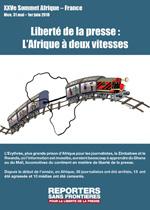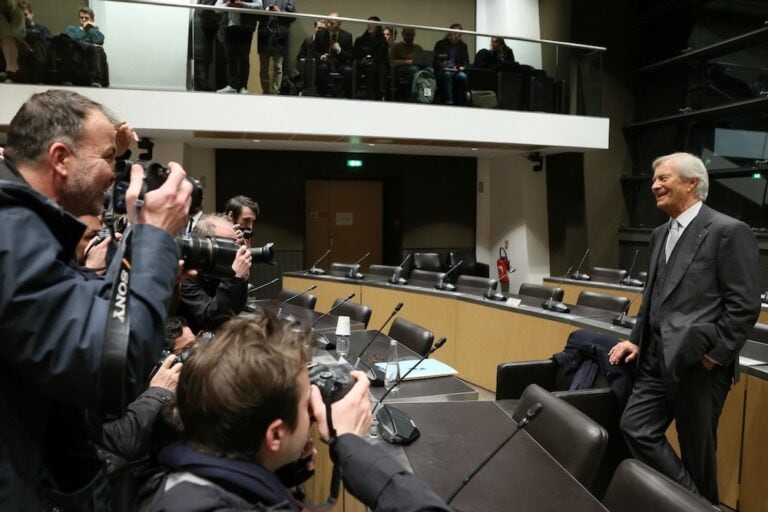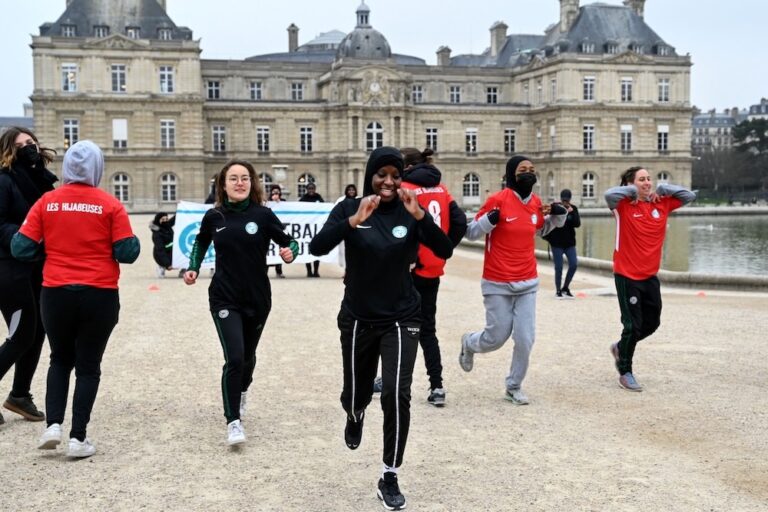The priority being given to economic and development issues should not eclipse the importance of reinforcing media freedom and free expression in Africa, said RSF.
(RSF/IFEX) – 28 May 2010 – A total of 52 African states have been invited to the two-day Africa – France summit that is due to begin on 31 May in the French city of Nice. Representatives of the European Union, International Organisation of the Francophonie, Food and Agriculture Organisation, African Union Commission and World Bank are also due to attend the summit, the 25th of its kind.
French President Nicolas Sarkozy will have three closed-door meetings with all the heads of state about what are being billed as the leading issues of the 21st century: Africa’s place in world governance, reinforcing peace and security, and climate and development.
Working meetings will also be held among government ministers responsible for economic affairs, and for the first time entrepreneurs – 80 French and 150 African – have been asked to participate. With the topics of these meetings including the private sector’s role in development and employment in Africa, this summit is resolutely focused on the economy and business world.
The priority being given to economic and development issues should not however eclipse the importance of reinforcing media freedom and free expression. They are essential for democratic governance and the creation of social cohesion, without which fair and socially effective economic development is impossible. These issues are crucial for Africa, long the victim of its image of corruption and underdevelopment.
“There is as two-speed Africa now – an Africa of virtuous countries, which show the most respect for press freedom and the work of journalists, and an Africa of countries such as Gambia and Rwanda that regard journalists as the enemy,” Reporters Without Borders said.
“The media diversity in Mali has nothing in common with Eritrea’s complete absence of independent media,” the organisation continued. “The ability of journalists in Ghana to express their views and be outspoken is infinitely greater than that of their colleagues in Equatorial Guinea. As for host country France, it could learn a lot from some African countries that have for years been displaying calm and tolerance towards their journalists.”



